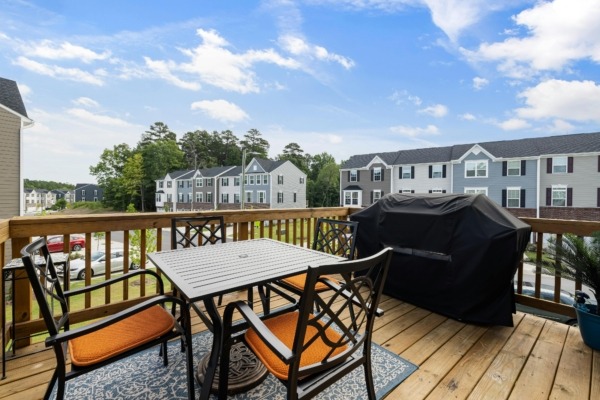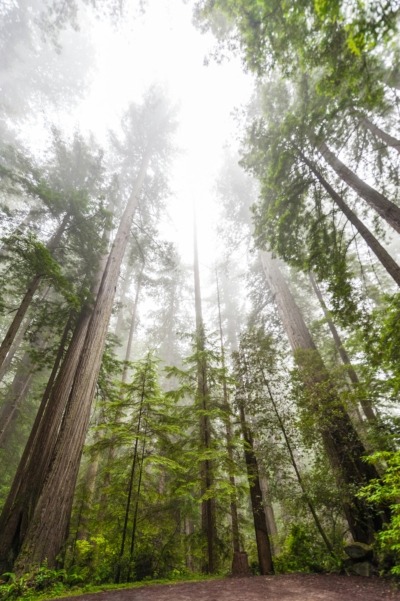What Type of Wood Can You Use for Your Outdoor Deck?
Building an outdoor deck is an exciting home improvement project, and choosing the right type of wood is crucial for its long-lasting beauty. With so many wood options available on the market, selecting the right material can be overwhelming. Thankfully, we have a solution!
Today’s guide will help you understand the pros and cons of popular decking woods to ensure you make an informed decision for your outdoor space.

Wood Types for Decking
When choosing wood for your deck, the main factors you should consider are durability, resistance to weather conditions, and ease of maintenance. Some wood species are naturally better suited for outdoor use than others, and each has its own advantages.
Cedar: A Natural Choice
Cedar is a popular choice for outdoor decking due to its natural resistance to decay and insects. It contains oils that act as a preservative. This makes it less prone to rot and warping.
Additionally, cedar is lightweight and easy to work with – great for homeowners and builders. It also has a smooth and attractive finish. If you happen to be in an area with high humidity or moisture, cedar is a reliable option that can withstand these conditions while maintaining its beauty.
Redwood: Beautiful and Strong
Redwood shares many of the same qualities as cedar, including natural resistance to unwanted changes over time. It’s also highly durable. Redwood offers a rich, warm color and is often chosen for the way it looks. However, it tends to be more expensive than cedar, so budget-conscious homeowners should consider whether the look of the wood is worth the extra cost. 
Pressure-Treated Pine: Affordable and Practical
Pressure-treated pine is one of the most common materials used for outdoor decking. It is both affordable and widely available. The wood is chemically treated to resist rot, insects, and fungus. While pressure-treated wood may not have the same look as cedar or redwood, it can be stained or painted for the look you are going for.
Keep in mind that pressure-treated wood requires regular maintenance, including sealing and staining. This is done in order to prevent cracking and splintering over time.
Hardwoods: Durable With a Great Look
For maximum durability in your deck, hardwoods like ipe and mahogany are excellent choices. These dense woods are also naturally resistant to rot, insects, and harsh weather conditions. Ipe is known for its strength and long lifespan, often lasting up to 40 years or more if cared for properly.
While hardwoods are highly durable, they can be difficult to work with due to their density. The upfront cost is also higher than other wood types. However, if you’re looking for a deck that will likely last for a long time, hardwoods offer a premium option worth considering.
Deck Design Considerations: Custom Balusters and Finishing Touches
Beyond the choice of material, it’s important to consider the overall design and functionality of your deck. The right balusters can significantly improve its appearance and safety. Custom balusters, in particular, add a high level of personalization and can complement various wood types. This means your deck will be cohesive with the rest of your home’s outdoor vibe.
At Arnold Wood Turning, we specialize in providing custom wood balusters that can be tailored to match your deck design. Incorporating beautifully crafted balusters is a smart way to complete your outdoor space.
Choosing the Right Wood Based on Your Climate
Your local climate plays a big part in determining which type of wood will perform best on your outdoor deck. Areas with heavy rainfall or humidity may benefit from cedar or redwood, both of which are naturally moisture-resistant. In contrast, if you’re in a dry or hot climate, you might prefer pressure-treated pine or a dense hardwood to withstand the heat.
Additionally, consider the amount of sun exposure your deck will receive. Prolonged exposure to the sun can cause some woods to fade or crack. It’s essential to choose a wood that can handle the UV rays without extensive maintenance.
Maintaining Your Deck
No matter what type of wood you choose or the climate you’re located in, proper maintenance is key to ensuring your deck lasts for years. Regular cleaning, sealing, and staining will protect the wood from the elements and prevent common issues. Investing in high-quality sealants and finishes designed for outdoor use will keep your deck looking new and extend its lifespan.
Conclusion: What Type of Wood Can You Use for Your Outdoor Deck?
Ultimately, the type of wood you use for your outdoor deck depends on your budget, climate, and preferences. Whichever wood you select, consider its ability to withstand your local climate and commit to regular maintenance to preserve its appearance and strength.
And when it comes to finalizing your deck’s design, don’t overlook the importance of quality balusters. Arnold Wood Turning offers custom-crafted options that blend style and functionality, making your deck not only a space for relaxation but also a reflection of your personal taste.
Reach out to us today for a free, custom, no-obligation quote!
